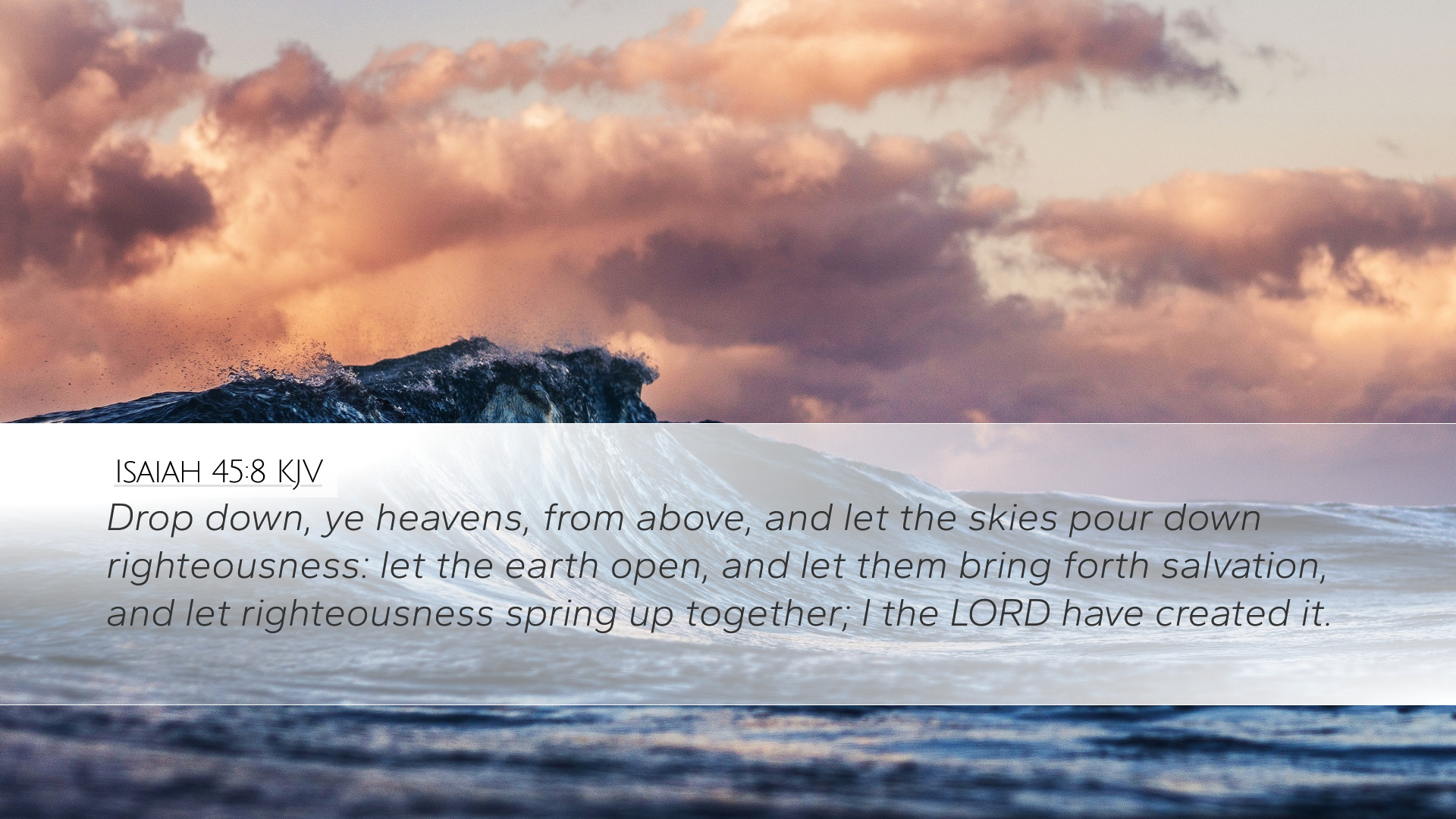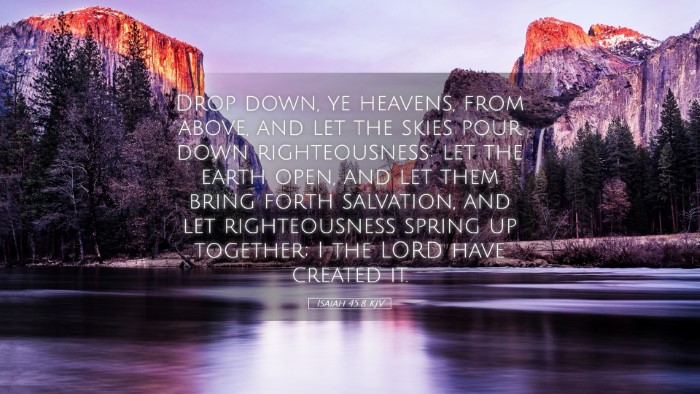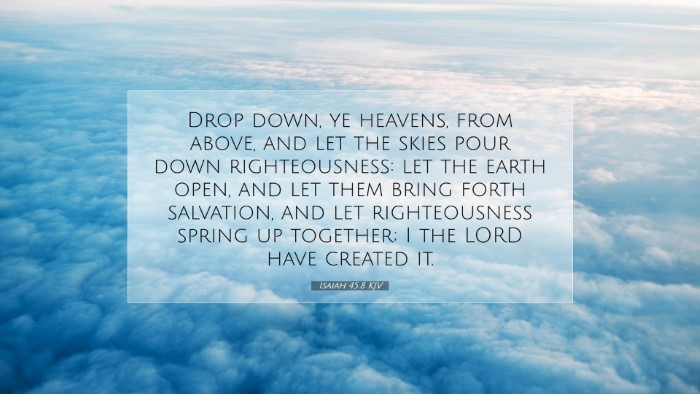Commentary on Isaiah 45:8
Isaiah 45:8 states:
"Drop down, ye heavens, from above, and let the skies pour down righteousness: let the earth open, and let them bring forth salvation, and let righteousness spring up together; I the LORD have created it."
Overview and Context
The book of Isaiah is a profound theological work that navigates themes of judgment, redemption, and the sovereignty of God. In this particular verse, Isaiah transitions into a call for creation itself to respond to God’s unfolding plan of salvation. This passage is set against the backdrop of God’s declaration of His sovereignty, and His promise to restore Israel and bring justice to the world.
Theological Insights
This verse exemplifies the interplay between divine sovereignty and human response. As noted in Matthew Henry's Commentary:
- Divine Authority: God's command to the heavens to drop down righteousness reflects His absolute authority over creation. The imagery suggests the outpouring of blessings and righteousness as a divine initiative.
- Righteousness and Salvation: The request for the heavens to pour down righteousness connects with God's overarching plan to bring about salvation through His covenant promises. The use of "righteousness" signifies God’s moral perfection and His desire for His creation to mirror His character.
Symbolism of the Skies and the Earth
Albert Barnes highlights the importance of the imagery used in this verse:
- Heavens and Righteousness: The heavens represent the higher realm of divine governance. When asked to drop down righteousness, it implies that divine justice and mercy are to become manifest in the world.
- Earth's Response: The earth opening to bring forth salvation is significant in its symbolic representation of the renewal and restoration of creation, echoing the theme of resurrection and new life—a recurring motif throughout scripture.
God as the Creator
In the latter part of the verse, God asserts, "I the LORD have created it." Adam Clarke emphasizes:
- Assertion of Divine Agency: This statement serves to remind the reader that all things—including righteousness and salvation—originate from God. His creative power is foundational to the understanding that salvation and righteousness cannot be realized apart from Him.
- Encouragement for Faith: Recognizing God as the Creator encourages faith in His ability to bring about justice and restoration, instilling hope in God's people that their circumstances can be transformed.
The Call to Creation
This verse can be viewed as a call for all of creation to participate in God's redemptive plan. The heavens and the earth are personified, urging them to join in God’s scheme of salvation. Matthew Henry remarks on this participatory element:
- Integral to Worship: The invitation for the heavens and earth to respond emphasizes the cosmic scope of God's plan—not just limited to humanity, but encompassing all aspects of creation, thus acknowledging the Lordship of God over the entirety of the universe.
- Future Restoration: This foreshadows the eschatological reality where all of creation will affirm the righteousness of God, portrayed vividly in Romans 8:21-22, where the creation itself waits in eager expectation for redemption.
Practical Applications
For pastors, students, and theologians, this verse provides profound implications for preaching, teaching, and everyday faith:
- Call to Justice: The verse compels believers to reflect on their roles in seeking justice and righteousness in the world—a challenge for the church to actively engage in societal issues, advocating for God's righteousness.
- Hope in God’s Justice: It reinforces hope amid hopelessness, reminding God’s people that He is in control, moving towards a future where His righteousness will ultimately prevail over injustice.
- Worship and Awe: As the heavens are called to respond, believers are encouraged to cultivate a lifestyle of worship, recognizing that the entirety of creation reflects the glory and righteousness of God.
Conclusion
Isaiah 45:8 encapsulates the grand narrative of God’s sovereignty, the call to righteousness, and the hopeful anticipation of salvation. By inviting creation to participate in His redemptive mission, God reaffirms His authority and freedom to act, ultimately beckoning humanity into an intimate relationship with Him. This invites serious reflection and action upon the part of all believers to align their lives with the principles of righteousness and justice articulated within this remarkable verse.


